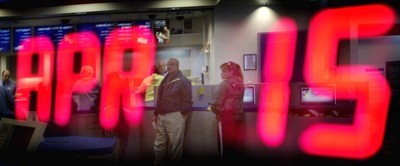Probe of earmark change sought

WASHINGTON — The Senate last week asked the Justice Department to investigate how funding for a Florida road project was included in the 2005 highway bill without being voted on by Congress.
In a 63-29 vote, the Senate called for an inquiry into a $10 million earmark for the Coconut Road interchange in Lake County, Fla.
The funding was intended for interstate highway improvements in southwest Florida, but the wording was changed before the $286 billion highway bill was signed by the president, and the money was redirected to Coconut Road.
At issue is whether there was any impropriety in the change.
A Florida developer linked to the Coconut Road project hosted a 2005 fundraiser for Rep. Don Young, R-Alaska. Young at that time was chairman of the House Transportation Committee.
Young has admitted supporting the earmark change.
House Minority Leader John Boehner, R-Ohio, said Young welcomed any investigation into the earmark.
Opponents of a Justice Department investigation questioned whether Congress should ask an executive branch agency to be involved in its own matters.
Sen. Harry Reid, D-Nev., voted for the investigation. Sen. John Ensign, R-Nev., voted against it.
Before settling on a course of action, the Senate turned back a bid to create a joint House and Senate investigation into the earmark.
The measure by Sen. Tom Coburn, R-Okla., failed 49-43. It needed 60 votes to pass.
Coburn sought an eight-member group to study the issue and make recommendations to ethics committees or the Justice Department.
Opponents said the commission was unnecessary because both houses of Congress have ethics committees. They were also concerned whether it was constitutional for one body to investigate the activities of another.
Reid voted against the plan. Ensign voted for it.
In the meantime, the Coconut Road earmark was removed from a bill making technical corrections to the 2005 highway law.
The technical changes allowed about $1 billion to be freed up for hundreds of transportation projects nationwide. The vote on the bill was 88-2.
Opponents said corrections amount to new earmarks that include wasteful spending. A $45 million appropriation for study of a high-speed, magnetic levitation railroad between Las Vegas and Anaheim, Calif., was among the examples cited.
Reid and Ensign voted for the bill.
HOUSE OKS TAX-DAY MEASURE
As Americans rushed to file income-tax returns by the April 15 deadline, the House voted to stop the IRS from using private agencies to collect back taxes.
The vote was 238-179.
Critics of the practice said private agencies should not have access to sensitive financial information. Federal employees would be a safer and better bet than nongovernment services in debt collection.
But others, including the Bush administration, claimed the private agencies go after tax scofflaws the IRS is too busy to chase. Eliminating the program would cost an estimated $578 million over 10 years, critics said.
A similar bill passed the House last year, but was blocked in the Senate by Sen. Charles Grassley, R-Iowa. He supports the private debt collectors and has an IRS-contractor collection firm in his state.
The measure also requires better record keeping for holders of health savings accounts. Democrats said money from the tax-exempt accounts sometimes goes for nonmedical expenses.
The record-keeping requirement would bring in just over $300 billion over 10 years, supporters said.
Rep. Shelley Berkley, D-Nev., voted to eliminate private debt collection. Reps. Dean Heller and Jon Porter, both R-Nev., voted to keep it.
HOUSE DEADLOCKS ON IMMIGRATION VOTE
In a rare tie vote, the House turned back a Republican-backed motion that sought to punish so-called “sanctuary cities” that do not report illegal immigrants to the federal government.
Those cities would not have been allowed to issue tax-exempt bonds.
Additionally, the measure would ramp up IRS efforts to stop illegal immigrants from seeking the earned-income tax credit.
Critics said the move was “xenophobic,” and would do more to harm bond holders than illegal immigrants.
The motion failed, 210-210.
Heller and Porter voted for the bill. Berkley voted against it.
DEBT RELIEF GETS GREEN LIGHT
The House used the occasion of a U.S. visit by Pope Benedict XVI to offer debt relief to poor countries. Debt relief is a priority of the Catholic Church.
In a 285-132 vote, the House allowed more than 20 developing countries to seek forgiveness of their debt.
The bill, as passed, would prohibit debt relief for governments who do business with Iran.
The Bush administration opposed the bill, arguing that countries that may have enough means to pay off debt would seek to have theirs forgiven.
Berkley and Porter voted for the bill. Heller voted against it.
STUDENT LOAN HELP OFFERED
With the credit crisis jeopardizing student financial aid, the House voted 383-27 to increase limits on student borrowing.
Many private lenders have recently stopped making government-subsidized loans. The bill enhances the Education Department’s role in ensuring those loans will be available.
It raises the limit for federal student loans from $23,000 to $31,000 for students who are dependents of their parents; and from $46,000 to $57,500 for those who are not.
Opponents said the measure may put too much emphasis on direct government lending.
Heller and Porter voted for the measure. Berkley did not vote.
Contact Stephens Washington Bureau reporter Aaron Sadler at asadler@stephens media.com or (202) 783-1760.